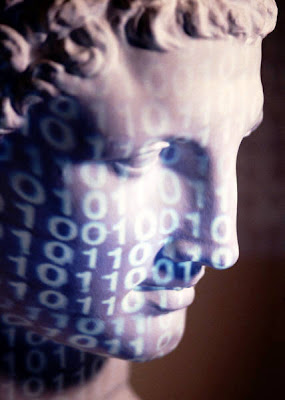Education Means More than Getting a Paper Good for Framing
It's been a long month with lots of work and countless events to attend. Now it's come to a screeching hold. But, that's the life in the academia. I like it though. A few days ago, I attended the commencement ceremonies and it was the culmination of a long journey for the graduating students. Actually I felt proud for some of them that I got to know more closely over the past 4 years. Even though I will never see them again, I felt I had played a positive role in their young lives. I wish all of them well.
In some sense, it was my moment too, because I started working at that university about four years ago, so I have a few things in common with the graduating class. Our paths will now separate, and I'll go back to the same classrooms next autumn. This is not just a job and I hope I maintain this spirit, which is lost among several of my colleagues.
I often ponder the question of education. It can't possibly be the training of an individual to perform specific tasks. Yes, we do need the scientists, the professionals, the experts, but we need critical thinkers. People who can connect the dots, make sense of the information, explore new paths, are very much needed as well. A learned person is one who has the intellectual curiosity to inquire and the confidence to amend.
Otherwise, we produce automatons, who are highly skilled and specialized--and even though they help our collective progress, they don't get to fully realize their intellectual potential. Education may be the key to many good things, but we should remember that the ultimate goal of education is not a piece of paper good-for-framing; it's to become a learned person--a quest that lasts a lifetime.
Education should be an equalizing force--that is, give the individual the means to upward mobility--in a society, especially in the US where the gap between the classes is growing especially fast under the Bush administration. Actually, the mobility myth is just that. The rules of the game are being fixed in favor of the established elites, and it's getting harder for Americans to move up the socio-economic ladder.
There is another phenomenon today that's creating another gap: between those who have access to information and those who don't. Education and information are empowering, therefore, access to them is imperative especially for those who don't have a panoply of means.
It's nice to see adults in the White House who speak to us in complete sentences and appeal to our intellect--not to our worst primitive emotions. It's nice to see the President placing an emphasis on education and science. It would be even nicer if our society produced more educated persons; and this means education should be more accessible. If the individual is willing to put the time, energy and effort into this long journey, the price of admission shouldn't be so high as to be a barricade to progress.
We have a problem doing things pro-actively, planning ahead, saving money in the long term. Instead of prevention and reducing ill effects, we try to solve our problems when the symptoms are dire. People in school, for example, are less likely to become a public charge. Access to health care (prevention and early detection included) makes for a healthier population--and the savings are clear.















